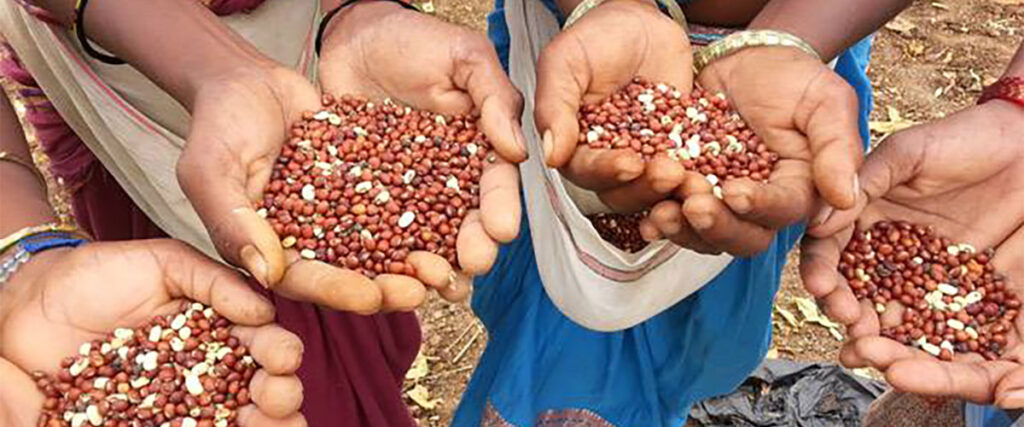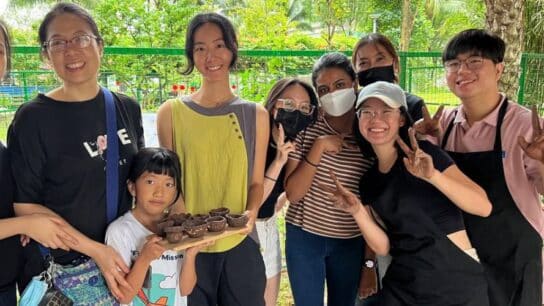Internationally acclaimed Permaculture teacher Howard Story is leading the green movement in Thailand, striving for long-lasting change, one plant at a time.
With the ever-increasing number of local entrepreneurs getting creative in finding new business strategies enabling them to make a profit with a purpose, social entrepreneurship is really starting to take off in Thailand. One entrepreneur that fits this mould is Howard Story. Previously, he worked at IBM as both an engineer and an educator before opting for early retirement. Since then he has been following his true passion of helping others.
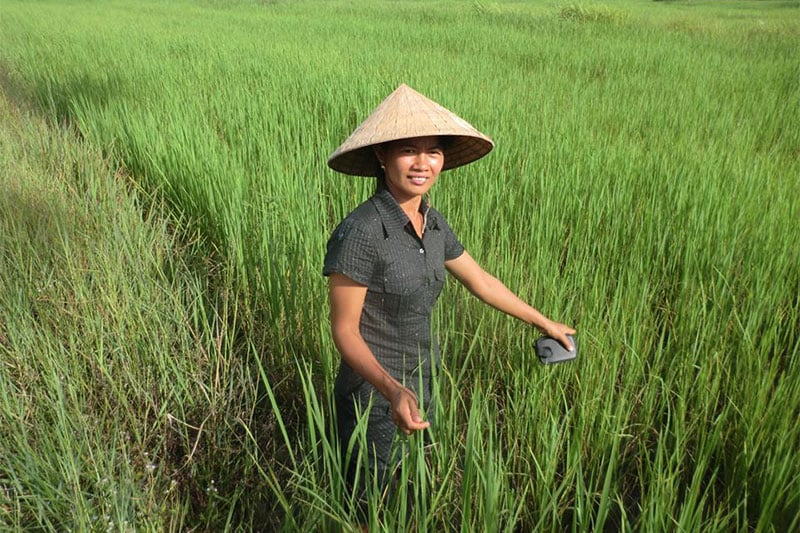
When Howard first moved from Vancouver Island in Canada to Isaan in the Northeastern region of Thailand 5 years ago, one thing became clear to him – “Thailand, and especially Bangkok, is lacking behind in terms of bringing about environmental and societal change”, he explains. At this point, Howard did not even have the beginnings of a plan. Today, his social enterprise Permaculture Institute Thailand founded back in 2013 is absolutely thriving and continues to successfully engender much needed change through their numerous innovative interventions.
As one of the world’s most visited countries, it might be surprising to some that Thailand is as far behind as it is with regard to their environmental responsibilities. Economic development has come at a clear cost, and leaves a damningly evident environmental footprint in its wake. Just earlier this year, Bangkok’s air quality was said to be well over what is deemed as “danger level” and residents of the capital were even warned to wear face masks.
Seeing the need for change, Howard launched the Permaculture Institute of Thailand with the aim of improving the well-being of local farmers through organic farming and the creation of a solid platform and community that champions environmental change. The term permaculture was developed and coined by graduate student David Holmgren and his professor Bill Mollison in 1978, and advocates for the development of agricultural ecosystems that are both sustainable and self-sufficient. Today, the social enterprise maintains a total of 4 farms situated across the country, with their education centre based in Isaan.
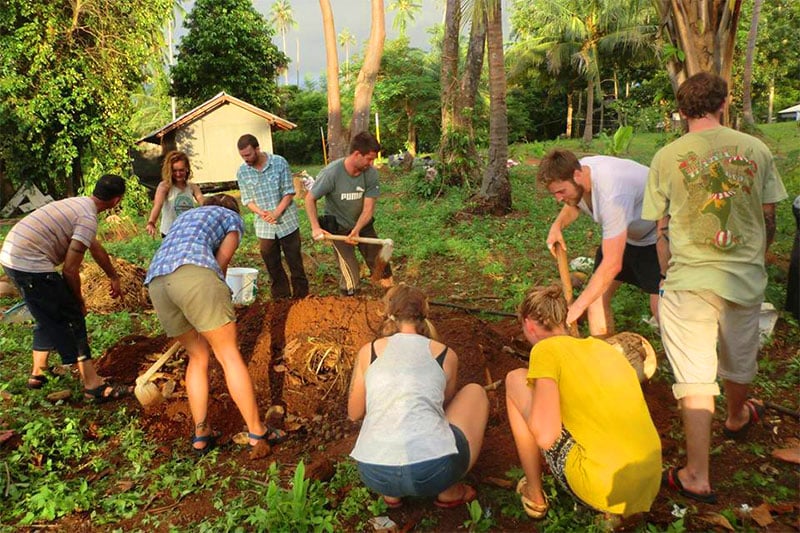
The Permaculture Institute of Thailand is based on 3 core ethics; care for the earth, care for the people, and fair share. This final ethic is based on the belief that one ought to distribute any surplus evenly with the people and the earth. Howard points out, “the greatest issue facing Thai rice farmers today is that for every 100 Thai Baht they get from selling their rice, they spend 40 Thai Baht on fertilizers and another 5 – 8 Thai Baht on pesticides”. By adopting permaculture techniques and organic farming, farmers will not only double their income but will also be able to prevent chemical fertilizers from killing natural biology and creating dead zones like that seen at the mouth of the Chao Phraya river – a place where nothing now can physically survive. He continues, “we teach farmers how to use natural processing methods, such as using cow and chicken manure, and then how to mix it with leaves and rice straws. By working closely with local farmers, we are providing them with the necessary tools in order to be truly sustainable.
For Howard, it is essential that the young generation understands how urgent the issue is as they will soon be the country’s change makers. Every year Permaculture Institute of Thailand works with schools to ensure that the curriculums are aligned with sustainable development goals. Howard clarifies, “we are not interested in necessarily changing the curriculum, but we are interested in building the curriculum and values into the existing standards that schools already have”. He currently partners with international schools in Bangkok, sharing a belief in the powerful impact schools can have on sustainable futures, explaining, “we help schools bring subjects like geography, maths, science, and english into the garden. Students can learn, discover and observe in a living laboratory where lessons are drawn for real life experiences. We would love to see this idea spill into the public school sector, but this is up to the government”.
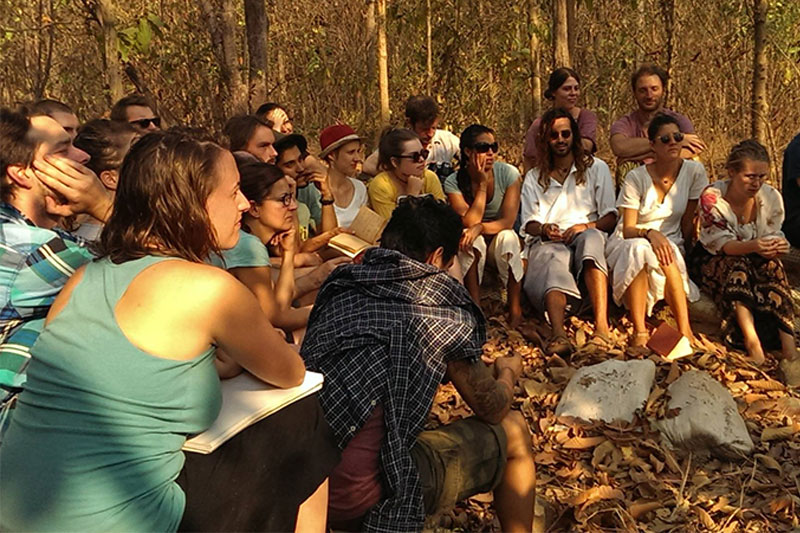
When it comes to environmental issues, Bangkok really has a challenge ahead of it. Many forward-thinking plans and social projects have died a silent death due to lack of support and commitment. Howard stresses that as “everyone breathes the air, everyone is therefore responsible to take action. The 21st century ought not to be about being Thai, Canadian, American, or Japanese. Instead, it should be about how to survive as a common species of the planet. We need to start now because we are already way behind. We are in trouble”.
On top of founding the Permaculture Institute of Thailand, Howard, encouraged by the environmental movements in other major cities, has introduced ‘Green Bangkok’. The initiative focuses on organic, urban grown food, and is a chemical free community-based project. The idea behind it is to create positive change for the city by allowing buildings to have rooftop gardens. He points out, “it’s crazy that they ship tomatoes halfway across the world when we can easily just plant them in our own gardens. Green Bangkok will provide our city with a new way to create food security whilst also rejuvenating the environment by lowering our carbon footprint”.
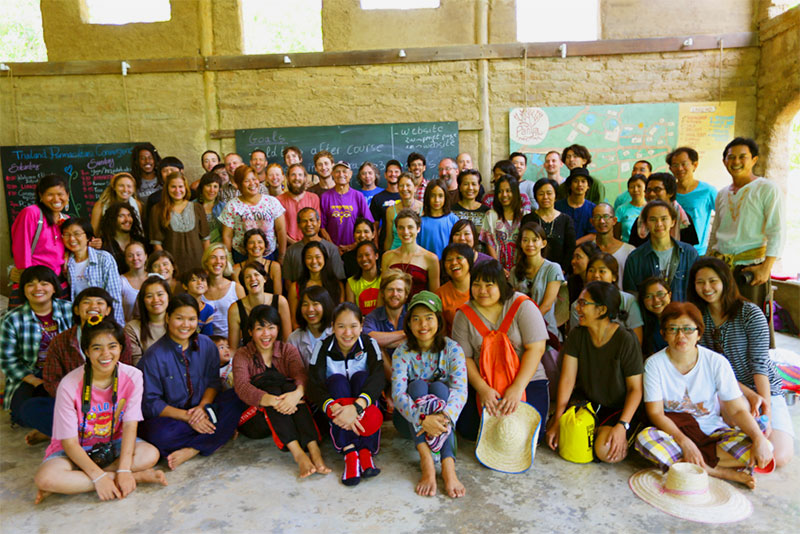
Although it has been 5 years since Permaculture Institute of Thailand first started, the social enterprise is still at its infancy stage, but with big plans ahead. Howard explains, “we are 100% self supporting and rely on revenue from our teaching courses to support our projects and initiatives. We teach a Permaculture design certificate course in Isaan every January. It is a 2 weeks course with a certificate that is internationally recognized”. The team is currently made up of 150 farmers who are also part of the Worldwide Organization of Organic Farms of Thailand (WOOF), as well as of tourists who join in for a cultural exchange with the local community. While there are challenges ahead involved in introducing urban dwellers to the concept of Permaculture, Howard is confident that, with the help of the Thai government, Thais will find a way to shape it to their own use.
For Howard, the global picture is much more complex than that which bare facts might suggest. His experience with the Permaculture Institute of Thailand has proven to be worthwhile so far, with growing numbers of businesses, schools and restaurants reaching out to bring more green into their daily operations, and more and more local farmers adopting permaculture principles into their farming methods. As far as the Permaculture Institute of Thailand being a social enterprise, Howard sees it as something greater – an opportunity for Thais to get involved and introduce greener change into their culture. Looking ahead, he plans to be more involved with local schools, restaurants, and businesses in Thailand’s major cities, and has hopes to partner with other private and social organizations so as to triple their effectiveness. In his own words, “This is a global movement inside Thailand”.
Related Articles
